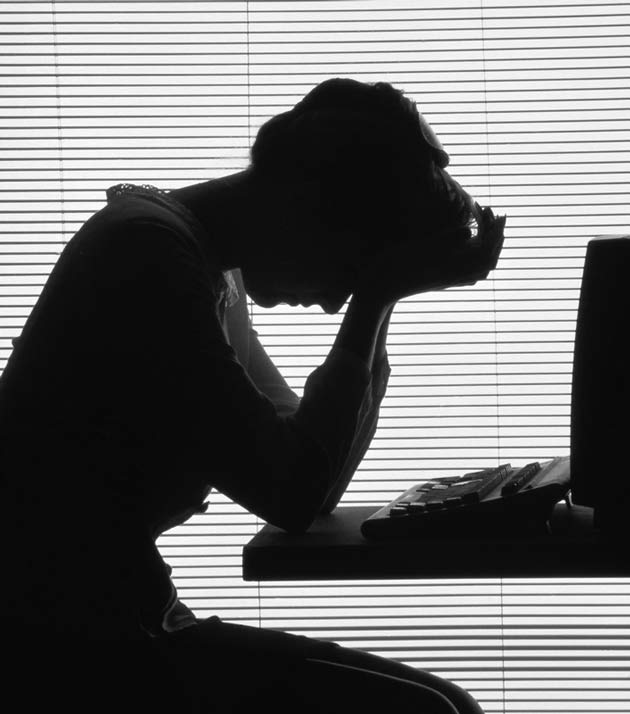Men Who Blame Victim for Sexual Harassment Are Often Harassers

Get the world’s most fascinating discoveries delivered straight to your inbox.
You are now subscribed
Your newsletter sign-up was successful
Want to add more newsletters?

Delivered Daily
Daily Newsletter
Sign up for the latest discoveries, groundbreaking research and fascinating breakthroughs that impact you and the wider world direct to your inbox.

Once a week
Life's Little Mysteries
Feed your curiosity with an exclusive mystery every week, solved with science and delivered direct to your inbox before it's seen anywhere else.

Once a week
How It Works
Sign up to our free science & technology newsletter for your weekly fix of fascinating articles, quick quizzes, amazing images, and more

Delivered daily
Space.com Newsletter
Breaking space news, the latest updates on rocket launches, skywatching events and more!

Once a month
Watch This Space
Sign up to our monthly entertainment newsletter to keep up with all our coverage of the latest sci-fi and space movies, tv shows, games and books.

Once a week
Night Sky This Week
Discover this week's must-see night sky events, moon phases, and stunning astrophotos. Sign up for our skywatching newsletter and explore the universe with us!
Join the club
Get full access to premium articles, exclusive features and a growing list of member rewards.
Men who blame women for being sexually harassed are more likely to be harassers themselves, a new study of college students finds.
The findings are a confirmation of what social scientists had expected, said study researcher Colin Key, a psychologist at the University of Tennessee, Martin. But the results could help explain why some environments seem to foster sexual harassment, Key said.
"There are some toxic work environments where males dominate, and there is a culture that lets them engage in this action and then get away with it," Key to LiveScience. Hopefully, this just adds to the knowledge that we need to target the whole system sometimes and not just these men."
Key and his co-author Robert Ridge published the findings online April 1 in the Journal of Social and Personal Relationships.
Harassers and victim-blamers
Previous studies have shown that people with traditional views of gender roles are more likely to blame the victim in cases of sexual harassment. This victim-blaming can involve judgments based on how the victim was dressed or how she was behaving. (In the majority of sexual harassment cases, the victim is a "she," according to the study scientists. However, the numbers vary depending on how sexual harassment is defined and the particular study.) Research has also shown that both unwanted sexual advances and derogatory gender-based comments are common in many workplaces. In some samples, nine out of 10 women report facing workplace sexism.
Even subtle sexual harassment can harm a woman's performance on the job. In one study, women who were ogled by men did worse on a math task.
Get the world’s most fascinating discoveries delivered straight to your inbox.
Key wanted to understand not just why sexual harassment happens, but why many people are willing to excuse it. He turned to a psychological theory called "defensive attribution." In layman's terms, this theory suggests that people will try to protect themselves from blame in a given situation. If defensive attribution explains men's propensity to blame the victim, Key theorized, victim-blaming men should be the ones most likely to fear blame themselves — in other words, potential harassers.
Self-protection
To test the theory, Key and Ridge asked 119 college men, ranging in age from 18 to 28, to take a survey measuring how likely men are to sexually harass women. The survey doesn't ask men directly whether they harass women, but rather asks about attitudes associated with harassment, such as whether women use sex to their advantage or are flattered by sexual advances, Key said.
Next, the men read eight short vignettes about instances of sexual harassment. In one, a male restaurant server tells his female coworker that her tips would be higher if she'd show more skin. The study participants were then asked how likely it was that they would be in the shoes of the man in each vignette and how much the fictional men and their victims were to blame for the harassment.
Unsurprisingly, the men with a high proclivity toward sexual harassment, as rated from the initial survey, said they felt more similar to the fictional harassers. They were also less likely to blame the harasser for his behaviors and more likely to blame the victim. That fits with the self-protection theory, Key said.
The men's attitude seemed to be, "I might do that kind of thing and I don't want to get in trouble," Key said.
Red flags
Only college students were studied, Key and Ridge wrote, so further research needs to be done to understand attitudes in other age groups. Future studies should also investigate harassment in contexts other than workplace, they wrote.
But the current research should provide some comfort — and an early warning — to women who have been sexually harassed and encountered victim-blaming, Key said.
"As a woman, when I get blamed, maybe I shouldn't give a crap about what that guy thinks," Key said. "Because maybe he's the kind of guy who would do this to me, too."
You can follow LiveScience senior writer Stephanie Pappas on Twitter @sipappas.

Stephanie Pappas is a contributing writer for Live Science, covering topics ranging from geoscience to archaeology to the human brain and behavior. She was previously a senior writer for Live Science but is now a freelancer based in Denver, Colorado, and regularly contributes to Scientific American and The Monitor, the monthly magazine of the American Psychological Association. Stephanie received a bachelor's degree in psychology from the University of South Carolina and a graduate certificate in science communication from the University of California, Santa Cruz.
 Live Science Plus
Live Science Plus










